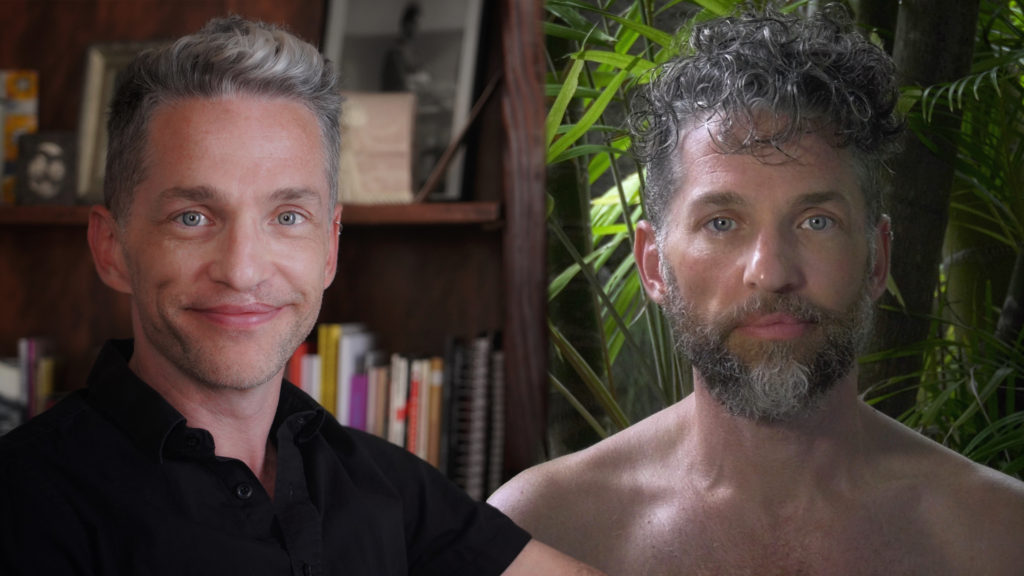
I entered into production on Manscaping driven by my own complex matrix of desire and fear elicited by barbershops, and the impulse to scrutinize those feelings more deeply while exploring the lives, work, and experiences of other queer artists and activists linked to these masculinist spaces. My approach to documentary production as a producer/director/cinematographer/editor (accompanied in the field only by my sound recordist/co-producer husband, and later assisted by our trusted trio of sound, music, and colorist/motion graphics artists) is increasingly rare. My scaled-down presence with my participants is one of shared vulnerability. It permits me to look closely at the lives and events I’m documenting, and simultaneously at myself, fostering a distinct poetics, or language, for each project: one that moves beyond talking heads and exposition, or the extractive legacies of documentary, to instead find the moments and details that render a participant both specifically unique and deeply relatable, even across registers of difference.
I think of documentary’s potential as being inherently queer: using intersectional and interdisciplinary frameworks to unpack perceived norms. Manscaping is an experimental documentary that uses barbering and body hair as a means of questioning historical and cultural ideas about masculinity and manhood in the West. My own queer perspective and the stories of other LGBTQ+ and marginalized individuals are re-centered in my media works, connecting audiences with issues and perspectives that have traditionally been excised from or sidelined by mainstream media. My pursuits began with autobiographical acts in works like The Skin I’m In, shifted to biography with Zen & the Art of Dying, and has now extended outward to transnational, ensemble work in Manscaping.
Manscaping amplifies queer, Black, and trans issues in essential, timely ways, giving voice to underserved audiences and inspiring others to scrutinize their implicit bias and entitlement as they become productive allies. The film reveals how its three central participants are transforming the often-exclusionary space of the barbershop into a site of queer reimagining and possibility. Devan, Jessie, Richard, and their communities of friends, clients, and collaborators vivify a spectrum of cis-, trans-, and nongender identifications, races and ethnicities, sexual orientations, and national origins. Their varied engagements with barbering help audiences to reimagine masculinity (and gender more broadly) as an ongoing cultural performance and dynamic space for self-expression and social justice, modeling new conceptions of personal and cultural identity that both reveal and destabilize toxic masculinity—the engine of white supremacy.
This project is born out of our pivotal cultural moment, where the scrutiny of patriarchy and the dismantling of its legacies is arguably the most important priority of our time. The global rise of alt-right populism, the #metoo movement, a proliferation of anti-transgender laws, systemic racial injustice and hysteria about critical race theory in schools, the overturn of Roe vs. Wade, and SCOTUS’s signal that other rights of privacy and bodily autonomy (including contraception and gay marriage) are now under threat—are all rooted in entrenched systems of toxic masculinity and white supremacy.
Rather than engaging in didacticism or polemics, Manscaping addresses these vital issues and changemaking aims through the unexpected and vibrant contexts of barbershops, barbering, and grooming. The project’s three central participants are accessible, relatable, and inspiring, offering up queer, trans, and BIPOC perspectives and experiences many audiences may not have directly encountered before, making this an exciting, essential project.
Broderick Fox
